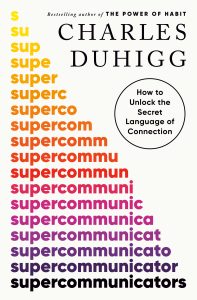
Few writers capture the fragile interplay between memory, melancholy, and meaning as masterfully as Georgi Gospodinov. In Death and the Gardener, translated with remarkable sensitivity by Angela Rodel, the International Booker Prize–winning author of Time Shelter turns inward, tracing the final month of a father’s life and the quiet transformation of grief into something both earthly and transcendent.
The novel opens with one of the most haunting first lines in recent literature: “My father was a gardener. Now he is a garden.” From that moment, Gospodinov draws readers into a world where death is not an abrupt ending but a continuation an absorption into the soil, memory, and time itself. The narrator, Georgi, recounts his father’s slow decline while simultaneously reflecting on the fate of his father’s generation, born in postwar Bulgaria, and how their labor, humor, and habits shaped the world he inherited.
This is not a loud or theatrical story. Instead, it unfolds with the patience of nature itself softly, cyclically, through small gestures and remembered moments. Talkincloud, a reviewer deeply moved by the book, described it as “a subtle meditation on transience and the attempt to tame sorrow.” The garden here becomes both a metaphor and a living character, a repository of memory and rebirth where the father endures through the tulips of spring.
Gospodinov’s prose is lyrical yet disciplined. Like in The Physics of Sorrow and Time Shelter, he balances philosophical depth with emotional precision. But this time, he leaves behind the grand experiments with time and history to dwell in something far more intimate the ache of watching a loved one fade, and the quiet courage of learning to let them go.
The novel reads like a mosaic of fragments memories, reflections, and dreamlike vignettes that together form a portrait of both a man and a culture. It resonates with echoes of Annie Ernaux’s A Man’s Place in its raw honesty and restrained tenderness. As Talkincloud notes, “Death here doesn’t come as a dramatic event but as an inevitability slow, silent, like a storm you cannot stop.”
For Bulgarian readers, Death and the Gardener holds an additional layer of cultural poignancy. As Gabriela Tsvetanova observes, “In our culture, death is rarely spoken about. Children are shielded from it until they must face it unprepared.” Gospodinov breaks this silence, writing about dying with clarity, compassion, and even humor. His confessions are raw and fearless, naming emotions most of us bury too deep to articulate. This is not a book about death it is a book about learning how to live with loss.
Another reader, Nevena Dishlieva-Krasteva, called it “a confession-novel, a therapy-novel.” She describes how Gospodinov distills the experience of mourning to its purest form shared empathy. Through storytelling, he shows that grief, when spoken, can become bearable. The act of writing itself becomes a kind of resurrection.
Death and the Gardener is a masterclass in literary subtlety. It finds beauty in the mundane the hum of a fly, the rustle of leaves, the scent of soil after rain. Every sentence feels distilled to its emotional essence, like poetry disguised as prose. It reminds us that life, like a garden, demands patience, tending, and acceptance that everything must eventually return to the earth.
Profound, compassionate, and deeply human, this is one of Gospodinov’s finest works a novel that does not seek to explain death but to coexist with it. It will speak to anyone who has ever stood beside a hospital bed or a graveside and searched for meaning in silence.
If you loved Time Shelter or The Physics of Sorrow, prepare for a more intimate but equally devastating journey. Death and the Gardener is not merely read; it is felt, remembered, and carried within you long after the final page.
👉 Get your copy here: Buy on Amazon


